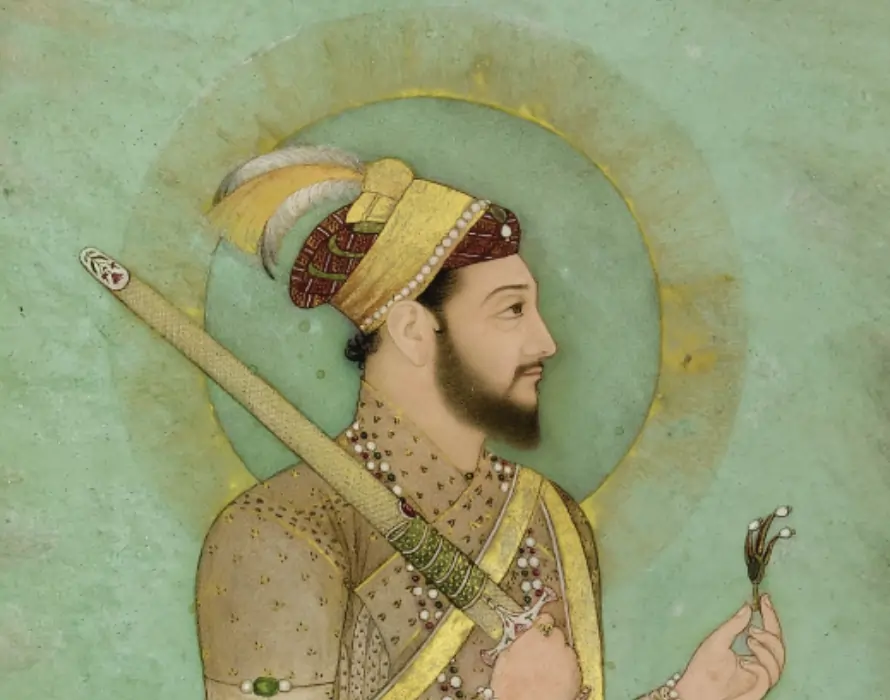The story of Dara Shikoh is a tragic tale, woven into the rich tapestry of the Mughal Empire’s history—a story of a prince whose intellect, spirituality, and liberal ideals made him one of the most fascinating figures of his age, yet ultimately doomed him in a brutal struggle for power. Dara Shikoh, the beloved eldest son of Emperor Shah Jahan, stood at the center of a tumultuous era, where political ambition and religious zeal collided with fatal consequences.
A Scholar-Prince in the Mughal Court
Born in 1615 to the royal court of Shah Jahan and his wife Mumtaz Mahal, Dara was raised in an environment of immense cultural refinement. He was a favored son, groomed to be a future ruler. Shah Jahan saw in Dara his own reflection—a young man of grace, charm, and intelligence. But Dara was more than just his father’s heir; he was a devout scholar and a philosopher, deeply curious about the human spirit and the mysteries of existence.
Dara Shikoh’s intellectual pursuits were notable for his era. A devoted scholar, he immersed himself in Sufi philosophy and sought to bridge Hindu and Islamic philosophical traditions. Dara’s most significant work, Majma-ul-Bahrain (“The Confluence of Two Oceans”), attempted to demonstrate the common spiritual foundations between Hinduism and Islam. He translated the Upanishads and the Bhagavad Gita into Persian, making Hindu texts accessible to Muslim audiences. Supporters of Dara see this as a bold attempt to foster a multicultural and pluralistic empire, while critics argue that his intense focus on religious integration alienated orthodox factions within the empire.
This open-mindedness, however, was viewed with suspicion by the orthodox elements of the Mughal court. His younger brother, Aurangzeb, harbored ambitions of his own and viewed Dara’s mystical pursuits as dangerously heretical and un-Islamic.
A Struggle for the Throne
As Shah Jahan’s health began to decline in the early 1650s, a fierce struggle for succession broke out among his four sons—Dara Shikoh, Shuja, Murad, and Aurangzeb. Though Shah Jahan made no secret of his preference for Dara, the traditions of the Mughal court dictated that the throne belonged to the strongest claimant, not necessarily the chosen one. Aurangzeb, a skilled military leader, and a staunchly conservative Muslim, viewed Dara as unfit to rule. To him, Dara’s openness to Hinduism and other beliefs was a betrayal of Islamic orthodoxy.
The succession struggle culminated in a series of violent confrontations between the brothers. Dara’s gentler disposition and inexperience in warfare put him at a disadvantage. Aurangzeb, by contrast, had spent years honing his skills on the battlefield, consolidating his support among the empire’s military and administrative elites. The deciding moment came in 1658 at the Battle of Samugarh, where Aurangzeb’s forces defeated Dara’s army in a decisive clash. Dara fled, desperately seeking refuge and allies, but his path was fraught with betrayal and misfortune.
A Final Betrayal
Eventually, Dara was betrayed by an ally and handed over to Aurangzeb. The conqueror showed no mercy. To Aurangzeb, Dara was a threat, not only to his claim to the throne but to the Islamic orthodoxy he sought to enforce across the empire. In 1659, Dara Shikoh was brought back to Delhi, paraded in chains, humiliated before the public, and condemned as a heretic.
His final fate was execution, a brutal end that served as a warning to all who might question Aurangzeb’s authority. Dara’s body was buried in an unmarked grave, and his legacy was suppressed. But his memory lingered in the hearts of those who admired his spirit, his intellect, and his vision of a more tolerant and inclusive India.
Legacy and the Loss of a Visionary
In many ways, Dara Shikoh’s defeat marked a turning point in the Mughal Empire. His vision for a syncretic, pluralistic empire was buried with him, while Aurangzeb’s rule led the empire down a path of increased religious orthodoxy and growing tensions with the diverse peoples under Mughal dominion. Although Aurangzeb expanded the empire’s territories, his policies ultimately planted seeds of discontent that would later contribute to the empire’s decline.
Dara Shikoh is remembered today as a prince who might have changed the course of Indian history had he lived and ruled. His philosophical works, such as his translation of the Upanishads, live on, symbolizing a moment in time when an open dialogue between religions seemed possible. His life remains a poignant reminder of the costs of ambition and the fragility of ideals in the face of ruthless power.



One response to “The Untold Story of Dara Shikoh: Mughal Empire’s Lost Visionary”
[…] Dara Shikoh: The eldest son and initially designated heir. Read more about the untold story of Dara Shikoh in this article. […]